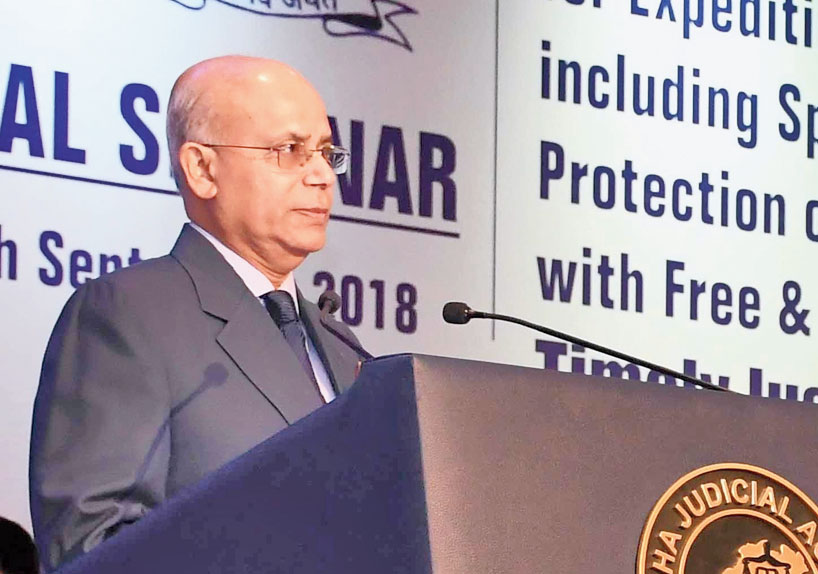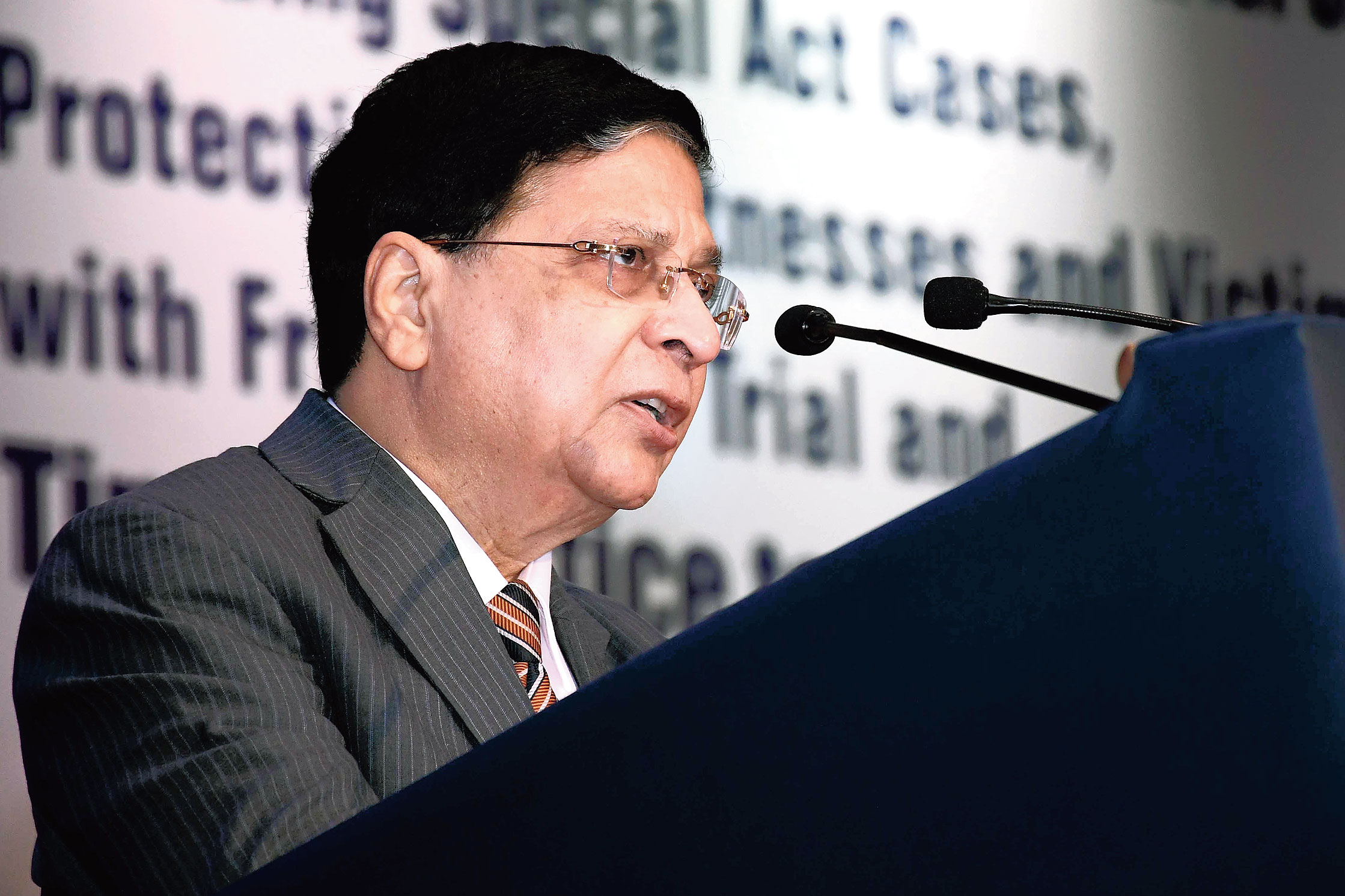Chief Justice of India Justice Dipak Misra said on Sunday that training was required for trial court judges in the country to sensitise them to the provisions of special acts such as Protection of Children from Sexual Offences (Pocso) Act.
The CJI said: “If the trial court judges are not sensitised, then the provisions of the Pocso Act would be vitiated.”
He said: “Trials under the special acts should be completed without delay.”
While delivering the valedictory address at a national seminar organised by the Odisha Judicial Academy here, Justice Misra said enhancement of judicial skill both at the individual and institutional levels was required for expeditious disposal and trial of cases.
“For building institutional skill it is the duty of the district judge and additional district judge to know the exact number of pending cases in their court and the courts subordinate to them in the district. And for that there should be deliberation at least every fortnight,” the CJI said.

Supreme Court Judge Navin Sinha speaks at the national seminar organised by the Odisha Judicial Academy in Cuttack. Badrika Nath Das
On procrastination of trial due to delay in production of prosecution witnesses, Justice Misra said the district judges should take stock of the situation every month along with deliberations on the issue with the collector and district magistrate and the superintendent of police in their districts.
He said the deliberations would reduce the non-production of prosecution witnesses in cases pending trial and also reduce the time lost due to it.
The CJI cautioned the judges on adjournment of cases. “The judges should allow adjourning of cases with special reasons, otherwise they will fall into the trap of delayed trial,” he said.
Justice Misra expressed disapproval of judicial officers quoting in their judgments Supreme Court and high court verdicts without going into them. Dubbing the trend as “judicial indiscipline”, he said: “The judicial officers should first understand the underlying principle of the judgments before quoting them.”
The CJI called upon the trial court judges not to just see cases from the victim’s point of view, but also ensure that the accused was not a victim in the case.
He also called upon judicial officers to explore the possibilities of “judicial settlement” with or without “mediation” to overcome delay in disposal of the cases. Judicial officers of 24 states participated in the two-day seminar. Judges from 24 high courts also attended the convention that included four technical sessions on topics related to judicial skill, expeditious trial and disposal of cases, protection of witnesses, free and fair trial and timely justice to the litigants.










